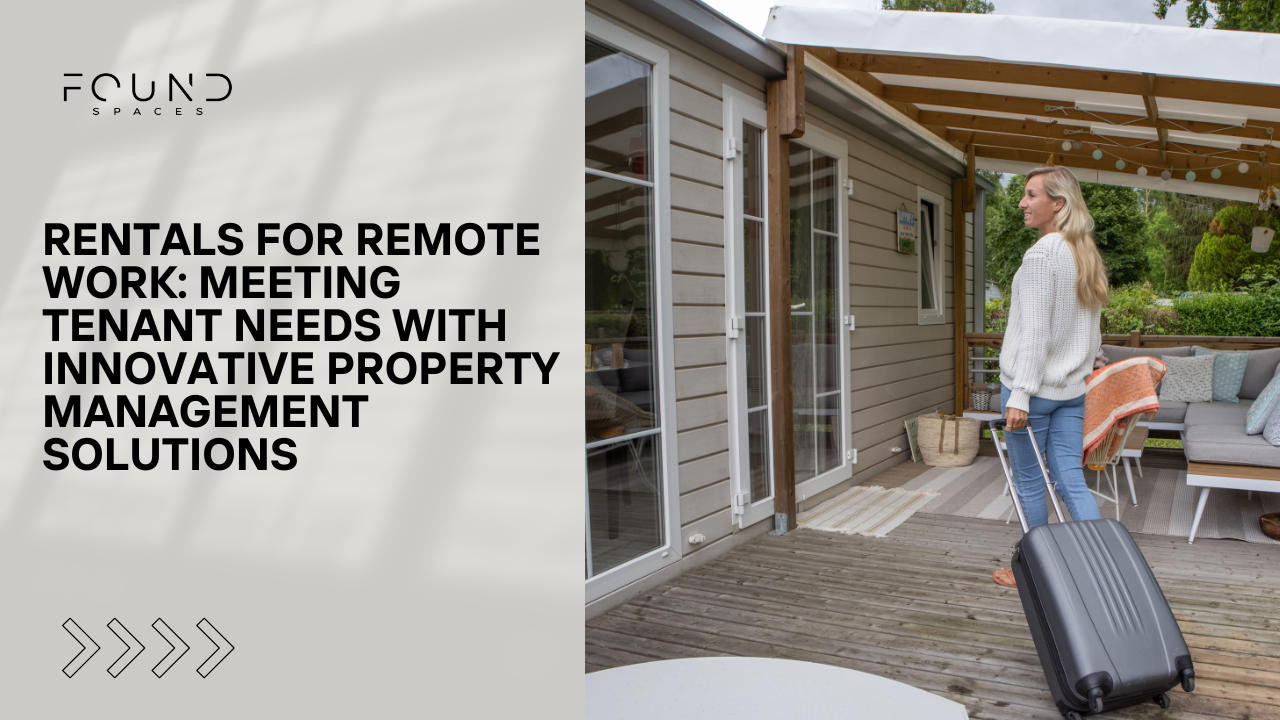The global shift towards remote work has significantly impacted residential property management, introducing a new set of demands for rental properties. Today’s tenants are looking for living spaces that can support remote work while promoting a healthy work-life balance. To stay competitive in the rental market, property owners must adapt their rentals to meet these needs and create environments conducive to productivity for remote workers.
Remote work has not only changed how we work but also where we choose to live. In this new era, the lines between personal and professional spaces have become blurred, making it essential for property owners to consider remote work requirements when upgrading rental units. By incorporating strategies to facilitate remote work, you can enhance tenant satisfaction, maintain occupancy rates, and maximize your property’s value.
In the sections below, we will explore various approaches to adapting rental properties for remote workers, focusing on aspects like high-speed connectivity, soundproofing, and optimizing living spaces. Additionally, we will highlight the benefits of partnering with residential property management services like Found Spaces to assess tenant needs, implement strategic changes, and track the effectiveness of these upgrades.
Investing in High-Speed Connectivity

Reliable, high-speed internet is an indispensable amenity for remote workers, making it one of the most critical aspects to consider when adapting rental properties. Property owners should:
1. Upgrade Internet Infrastructure
Invest in improvements like high-quality wiring and updated routers to ensure your property’s high-speed internet infrastructure supports optimal connection speeds.
2. Provide Wi-Fi in Common Areas
Extend high-speed Wi-Fi to common areas, like co-living spaces or outdoor spaces, so remote workers can access alternative work settings within the property.
3. Offer Internet Packages
Partner with local internet service providers to offer special internet packages for remote workers, streamlining the setup process and ensuring tenants have the connection speeds they need from day one.
Enhanced Soundproofing and Privacy

Noise reduction is a significant contributor to tenant satisfaction and productivity in the remote work environment. Consider incorporating the following soundproofing measures:
1. Upgrade Insulation and Building Materials
Invest in property upgrades, such as better insulation or installing soundproofing drywall, to reduce noise transmission between units and improve privacy.
2. Install Quality Windows and Doors
To reduce exterior noise and maintain a quieter living environment, replace outdated windows and doors with sound-absorbing materials or double-glazed windows.
3. Encourage Noise Awareness
Educate tenants about noise etiquette and encourage them to respect quiet hours, fostering a more noise-conscious community that caters to remote work schedules.
Designated Workspaces and Space Optimization
Properly designated comfortable workspaces at convenient locations are essential for remote workers, as they help separate work and personal areas. Property owners can:
1. Designate a Workspace in Larger Units
Offer layouts that include designated office or communal spaces within larger rental units, allowing tenants to separate their working area from other living spaces.
2. Create Shared Co-Working Spaces
Incorporate shared coworking spaces within the property, such as a common area or business center with meeting rooms, to facilitate remote work collaboration and convenience for tenants.
3. Optimize Storage and Organization Solutions
Implement smart storage solutions in rental units, such as built-in shelving or multi-functional furniture, to help tenants efficiently organize their workspaces and minimize clutter.
The Role of Found Spaces in Adapting Rentals for Remote Work
Partnering with a professional property management company like Found Spaces can greatly assist property owners in adapting their rental units to accommodate remote work:
1. Tenant Needs Assessment
Found Spaces can conduct surveys or gather feedback from tenants to assess their remote work requirements, helping property owners tailor their units to meet these expectations.
2. Project Management and Upgrades
Leveraging their industry expertise, Found Spaces can coordinate and oversee projects related to connectivity, soundproofing, and space optimization, ensuring the highest standards and efficiency.
3. Tenant Communication
Found Spaces can facilitate tenant communication, keeping them informed of ongoing property improvements and addressing any remote work concerns or recommendations they may have.
Conclusion
Adapting rental properties for remote work is a timely and strategic move to cater to modern tenant needs, fostering a work-from-home friendly environment that is more likely to attract and retain reliable tenants. By investing in high-speed connectivity, enhancing soundproofing and privacy, and optimizing space for improved work-life balance, property owners can successfully respond to the challenges brought on by the remote work revolution. Partnering with an advanced property management company like Found Spaces ensures that these adaptations are expertly executed and maintained, enabling property owners to stay ahead in the ever-evolving rental market.
Find out how Found Spaces can help you create rental properties that cater to remote workers and maximize your property’s potential, ensuring both tenant satisfaction and your investment’s long-term success in today’s competitive rental landscape.




